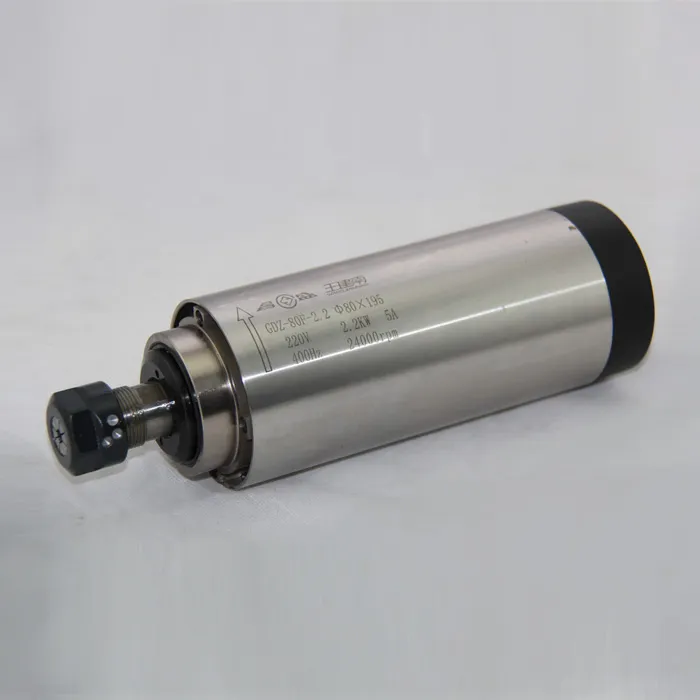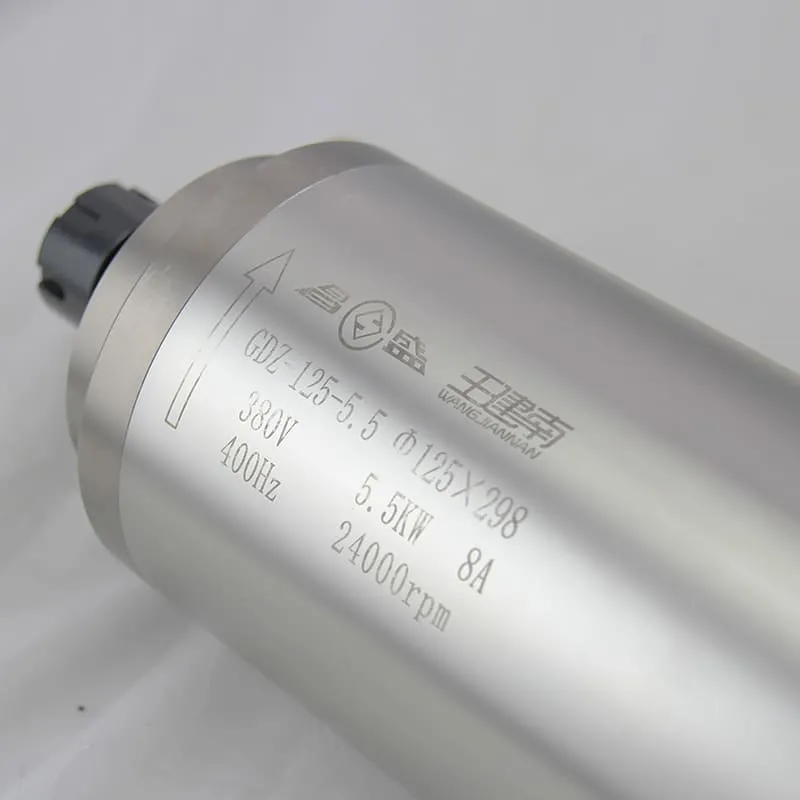How Much CNC Machinists Make
CNC (Computer Numerical Control) machinists play a crucial role in modern manufacturing, bridging the gap between advanced technology and precision production. If you’re considering a career as a CNC machinist or wondering about the earning potential in this field, you’ve come to the right place. In this comprehensive guide, we’ll explore the factors that influence CNC machinist salaries, typical pay ranges, and ways to maximize your earning potential in this dynamic profession.
Understanding the Role of a CNC Machinist
Before diving into salary details, it’s important to understand what a CNC machinist does. CNC machinists are skilled professionals who set up, operate, and maintain CNC machines. These machines use computer programs to control the cutting and shaping of materials like metal, plastic, and wood to create precise parts for various industries.
Key responsibilities of a CNC machinist include:
- Programming and operating CNC machines
- Reading and interpreting technical drawings and blueprints
- Setting up machines with the correct tools and programs
- Producing parts according to specifications
- Inspecting finished products for quality and accuracy
- Performing routine maintenance on CNC equipment
CNC machinists work with a variety of machines, including mills, lathes, and routers. For example, a machinist might operate a 2.2KW ER20 air-cooled spindle to create precision metal components.

A 2.2KW ER20 air-cooled spindle, commonly used in CNC machines
Average CNC Machinist Salary in the United States
According to recent data, the median annual salary for CNC machinists in the United States is approximately $45,000 to $55,000. However, this figure can vary significantly based on several factors, which we’ll explore in the next section.
It’s worth noting that this median salary represents a mid-career CNC machinist. Entry-level positions may start lower, while experienced machinists or those in specialized roles can earn considerably more.
Factors Influencing CNC Machinist Pay
Several key factors can impact how much a CNC machinist makes:
- Experience: As with most professions, experience plays a significant role in determining salary. Entry-level CNC machinists might start at around $35,000 to $40,000 per year, while those with 10+ years of experience can earn $70,000 or more.
- Skill Level: Machinists who can operate multiple types of CNC machines, program complex parts, or work with advanced materials often command higher salaries.
- Industry: Some industries, such as aerospace or medical device manufacturing, tend to offer higher salaries due to the precision and complexity of the work involved.
- Location: Salaries can vary significantly based on geographic location, with urban areas and regions with a high concentration of manufacturing typically offering higher pay.
- Education and Certifications: While many CNC machinists learn through on-the-job training, those with formal education or industry certifications may have access to higher-paying positions.
- Company Size: Larger companies often offer higher salaries and more comprehensive benefits packages compared to smaller shops.
- Shift Work: CNC machinists who work night shifts or weekends may earn shift differentials, increasing their overall compensation.
Salary Ranges by Experience Level
To give you a clearer picture of earning potential, here’s a breakdown of typical salary ranges for CNC machinists at different experience levels:
| Experience Level | Typical Salary Range |
|---|---|
| Entry-Level (0-2 years) | $35,000 – $45,000 |
| Mid-Level (3-7 years) | $45,000 – $60,000 |
| Experienced (8-15 years) | $60,000 – $75,000 |
| Senior (15+ years) | $75,000 – $90,000+ |
Keep in mind that these ranges are general estimates and can vary based on the factors mentioned earlier.
Top-Paying Industries for CNC Machinists
Some industries tend to offer higher salaries for CNC machinists due to the specialized nature of the work or the high value of the products being manufactured. These include:
- Aerospace: The aerospace industry often requires extremely precise parts and can offer salaries on the higher end of the spectrum, sometimes reaching $80,000 or more for experienced machinists.
- Medical Devices: Manufacturing medical devices demands high precision and adherence to strict quality standards, often translating to higher pay, with salaries potentially ranging from $60,000 to $85,000.
- Defense: The defense industry typically offers competitive salaries for CNC machinists working on specialized equipment, with pay often ranging from $55,000 to $75,000.
- Energy: Oil and gas, as well as renewable energy industries, often require custom parts and can offer attractive compensation, with salaries potentially ranging from $50,000 to $70,000.
- Automotive: While not always the highest-paying, the automotive industry offers stable employment and good salaries, especially for experienced machinists, with pay typically ranging from $45,000 to $65,000.
Regional Salary Variations
CNC machinist salaries can vary significantly by region. Here’s a quick overview of some high-paying areas for CNC machinists in the United States:
- West Coast: Cities like Seattle and San Francisco offer high salaries due to the concentration of tech and aerospace industries, with average salaries ranging from $55,000 to $75,000.
- Northeast: Areas around Boston and New York have a strong manufacturing base and tend to offer competitive salaries, typically between $50,000 and $70,000.
- Midwest: Traditional manufacturing hubs like Detroit and Chicago provide numerous opportunities for CNC machinists, with salaries often ranging from $45,000 to $65,000.
- South: Growing manufacturing sectors in states like Texas and North Carolina are creating demand for skilled machinists, with salaries typically ranging from $40,000 to $60,000.
The Impact of Specialization on CNC Machinist Salaries
Specializing in certain areas of CNC machining can significantly boost earning potential. For example, machinists who are skilled in working with high-precision machines equipped with advanced water-cooling spindles may command higher salaries due to the specialized nature of their work.

A 5.5KW ER25 water-cooling spindle, mastery of which can lead to higher pay
Some lucrative specializations include:
- 5-Axis Machining: Expertise in complex 5-axis machining can lead to salaries 10-20% higher than average.
- Micro-Machining: Specializing in extremely small, high-precision parts can command premium pay rates.
- Exotic Materials: Experience with difficult-to-machine materials like titanium or Inconel is highly valued.
- Programming and CAD/CAM: Advanced programming skills can push salaries towards the upper end of the range.
Career Progression and Salary Growth
As CNC machinists gain experience and skills, several career paths can lead to higher salaries:
- CNC Programmer: Moving into programming roles can increase earning potential, with salaries often ranging from $60,000 to $80,000.
- Quality Control Specialist: Leveraging machining knowledge in quality assurance can lead to higher-paying positions, typically $55,000 to $75,000.
- Production Manager: Overseeing entire production processes can significantly boost salary, often to $70,000 – $100,000+.
- Manufacturing Engineer: With additional education, machinists can transition to engineering roles, potentially earning $70,000 to $100,000+.
- CNC Instructor: Teaching the next generation of machinists at technical schools or community colleges can be rewarding both personally and financially, with salaries ranging from $50,000 to $70,000.
The Role of Education in CNC Machinist Salaries
While many CNC machinists start their careers through on-the-job training, formal education can play a role in earning potential:
- High School Diploma: The minimum requirement for most CNC machinist positions.
- Vocational Training: Completing a vocational program in machining can give you a head start and potentially a higher starting salary.
- Associate’s Degree: An associate’s degree in machining technology or a related field can lead to more advanced positions and higher pay.
- Bachelor’s Degree: While not always necessary, a bachelor’s degree in manufacturing engineering or a similar field can open doors to management roles and higher salaries.
The Impact of Technology on CNC Machinist Earnings
As CNC technology continues to evolve, it’s affecting the job market and salaries for machinists. Here are some trends to watch:
- Automation: While some fear automation might reduce job opportunities, it’s actually creating demand for machinists with advanced programming skills.
- Multi-Axis Machines: Proficiency with 5-axis and even 7-axis machines can lead to higher pay due to the complexity of the work.
- Additive Manufacturing: Knowledge of 3D printing and hybrid manufacturing processes is becoming increasingly valuable.
- Data Analysis: Machinists who can interpret and act on machine data to improve efficiency are in high demand.
For instance, machinists who can operate and maintain advanced machines with high-speed spindles are often compensated at higher rates due to the specialized nature of their skills.

A high-speed water-cooled spindle, knowledge of which can increase a machinist’s value
Negotiating Your Salary as a CNC Machinist
When it comes to maximizing your earnings as a CNC machinist, negotiation skills can be just as important as technical skills. Here are some tips for salary negotiation:
- Research Industry Standards: Know the average salary for your skill level and location.
- Highlight Your Skills: Emphasize any specialized skills or experience you have, especially with advanced equipment.
- Demonstrate Your Value: Be prepared to discuss your achievements and how they’ve benefited previous employers.
- Consider the Entire Package: Remember to factor in benefits, shift differentials, and overtime opportunities.
- Be Professional: Approach negotiations with a positive, professional attitude.
The Future Outlook for CNC Machinist Salaries
The future looks promising for CNC machinists, with several trends potentially impacting salaries positively:
- Increasing Automation: While some fear automation might reduce job opportunities, it’s actually creating demand for machinists with advanced programming and problem-solving skills.
- Reshoring: As more companies bring manufacturing back to the U.S., demand for skilled machinists is likely to increase.
- Aging Workforce: With many experienced machinists nearing retirement, opportunities for advancement and higher salaries may become more prevalent for younger workers.
- Advanced Materials: As industries adopt new materials, machinists with expertise in working with these materials may command premium salaries.
FAQs
How does the salary of a CNC machinist compare to other manufacturing jobs?
CNC machinists often earn more than general machine operators due to the specialized skills required. Their salaries are typically on par with or slightly higher than those of welders or quality control inspectors, but may be lower than advanced roles like manufacturing engineers.
Do CNC machinists get paid overtime?
Yes, many CNC machinists are eligible for overtime pay, which is typically 1.5 times their regular hourly rate for hours worked beyond 40 per week. Some companies may offer double time for holidays or extended shifts.
How quickly can a CNC machinist’s salary increase with experience?
With consistent skill development and good performance, a CNC machinist might see salary increases of 3-5% annually. Significant jumps often occur when moving to a new company or taking on a leadership role, where increases of 10-20% are not uncommon.
Are there any certifications that can help increase a CNC machinist’s salary?
Yes, certifications like those offered by the National Institute for Metalworking Skills (NIMS) or specific machine manufacturer certifications can demonstrate expertise and potentially lead to higher pay. Additionally, programming certifications or advanced CAD/CAM training can be valuable.
How does company size affect CNC machinist salaries?
Generally, larger companies tend to offer higher salaries and more comprehensive benefits packages. However, smaller companies might offer more flexibility, faster advancement opportunities, or performance-based bonuses that can compensate for a lower base salary.
Is there a difference in pay between CNC machinists who work with metal versus those who work with other materials?
Typically, CNC machinists working with metals, especially in industries like aerospace or medical devices, tend to earn more due to the higher precision requirements and value of the finished products. However, skilled machinists working with advanced composites or exotic materials in any industry can also command premium salaries.
Conclusion
The earning potential for CNC machinists is quite promising, with median salaries ranging from $45,000 to $55,000 and the potential to earn well over $70,000 with experience and specialization. Factors such as industry, location, experience, and skill level all play crucial roles in determining a CNC machinist’s salary.
For those considering a career in CNC machining or looking to advance in the field, focusing on continuous learning, specialization, and staying abreast of technological advancements can lead to increased earning potential. The future outlook for CNC machinists remains positive, with ongoing demand for skilled professionals in this critical manufacturing role.
Remember, while salary is an important consideration, it’s also crucial to consider other factors such as job satisfaction, work-life balance, and opportunities for growth when evaluating career options in CNC machining. With the right skills, experience, and approach, a career as a CNC machinist can be both financially rewarding and personally fulfilling.
Whether you’re just starting out or looking to take your CNC machining career to the next level, understanding the salary landscape and the factors that influence pay can help you make informed decisions and negotiate effectively. As the manufacturing industry continues to evolve, skilled CNC machinists who adapt and grow with the technology will find themselves well-positioned for success and financial stability in this dynamic field.

